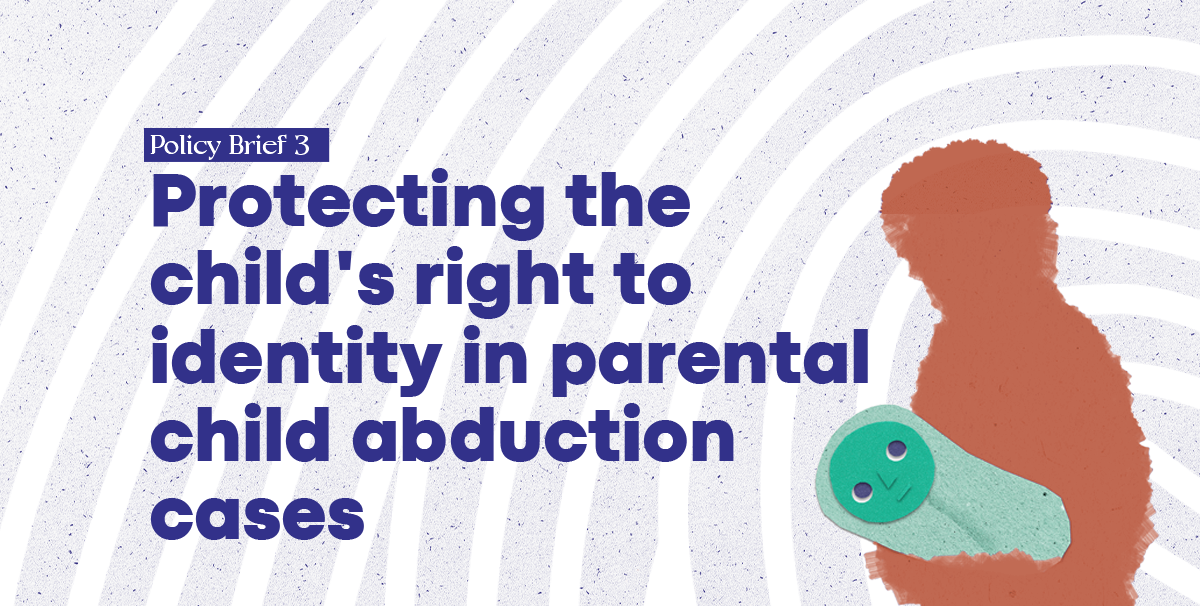
Policy Brief 3: Protecting the child’s right to identity in parental child abduction cases
This policy brief addresses the need of protecting the child’s right to identity, including family relations, in cases of parental child abduction under the Convention of 25 October 1980 on the Civil Aspects of International Child Abduction (HCCH 1980 Child Abduction Convention). The first section of the policy brief provides a short overview of the nature of parental child abduction proceedings and the relevance of considering the child’s identity during these proceedings. The HCCH 1980 Child Abduction Convention preserves the child’s identity by maintaining that it is in the best interests of the abducted child to be promptly returned to his or her habitual residence. This ensures that the child will maintain contact with the left-behind parent, siblings and other extended family. The instrument, however, also envisages that in some, well-defined situations, it will not be in the best interests of that child to be returned to his or her habitual residence. When ‘exceptions’ to prompt return are raised, the court in the requested State is encouraged to take into account a number of issues, including those related to the child’s identity. To this end, Section 2 highlights the importance of maintaining personal relations with both parents, siblings and extended family, to the extent possible, regardless of whether the child is returned to his or her (previous) habitual residence, or the child remains in the requested State. Discontinued contact with either parent can cause the child to lose part of his or her identity. Section 3 provides recommendations to better respect the child’s identity in these proceedings.
Share This Post






